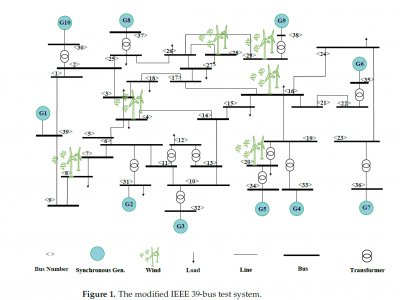Machine Learning

With the development of recommender systems (RS), several promising systems
have emerged, such as context-aware RS, multi-criteria RS, and group RS. However, the
education domain may not benefit from these developments due to missing information, such
as contexts and multiple criteria, in educational data sets. In this paper, we announce and
release an open data set for educational recommender systems. This data set includes not
- Categories:
 373 Views
373 ViewsSoil analysis is a fundamental practice in modern agriculture, essential for optimizing crop production while minimizing environmental impact. It encompasses the assessment of physical, chemical, and biological properties of soil, providing vital insights into soil health. Key parameters, including texture, pH, nutrient levels, organic matter content, and microbial activity, are assessed. This data guides informed decision-making for crop selection and resource management.
- Categories:
 2824 Views
2824 ViewsData were collected through the Twitter API, focusing on specific vocabulary related to wildfires, hashtags commonly used during the Tubbs Fire, and terms and hashtags related to mental health, well-being, and physical symptoms associated with smoke and wildfire exposure. We focused exclusively on the period from October 8 to October 31, aligning precisely with the duration of the Tubbs Fire. The final dataset available for analysis consists of 90,759 tweets.
- Categories:
 425 Views
425 Views
An experimental study was conducted on a high-voltage glass-type disc (LD-160) to investigate the effect of string arrangements on pollution and icing flashover characteristics. Two Artificial Neural Network (ANN) applications were developed to simulate and calculate the flashover voltage based on the experimental results. The test results showed that the inverted T-type arrangement can improve the pollution flashover voltage and increase the icing flashover voltage of insulator strings compared to the traditional arrangement of the I-string.
- Categories:
 61 Views
61 Views
This data repository comprises three distinct datasets tailored for different predictive modeling tasks. The first dataset is a synthetic dataset designed to simulate multivariate time series patterns, incorporating both linear and non-linear dependencies among input and target features. The second dataset, the Beijing Air Quality PM2.5 dataset, consists of PM2.5 measurements alongside meteorological data like temperature, humidity, and wind speed, with the objective of predicting PM2.5 concentrations.
- Categories:
 409 Views
409 ViewsThe dataset contains integrating renewable energy sources into power grids, emphasizing the need for advanced data-driven optimization models for optimal power flow problems. The dataset, which includes comprehensive details on both load and generator buses, covering active and reactive power measurements and voltage magnitudes and angles for the modified IEEE 39 bus system with wind power integration, is ideally suited for data-driven power system analysis studies. The dataset was generated for a part of the experiments.
- Categories:
 755 Views
755 Views
The dataset contains satellite observation files, ephemeris files, satellite clock error files, and differential code bias (DCB) files from approximately 40 stations in the Antarctic region between 2015 and 2016. And it contains uqrg ionospheric product data between 2015 and 2016. The above data are used to calculate the differential vertical electron content (dVTEC) between UPC TEC and GNSS TEC , which are further used to fit a model for correcting UPC products based on the spherical crown harmonic function.
- Categories:
 117 Views
117 ViewsThe dataset comprises many variables like area, production, season, minimum humidity, maximum humidity, minimum temperature, maximum temperature, district, crop name which impact the agricultural output of different crops in the region of Bangladesh. Surveys were conducted in various areas of Bangladesh to gather data on different types of crops. The primary aim of this collection is to facilitate research in the domain of precision agriculture.
- Categories:
 1827 Views
1827 Views
CT RECIST response, as measured by the change of tumor diameter, can accurately reflect objective response rate for advanced NSCLC patients. However, there exists obvious discordant between CT RECIST response and prognostic indicators. Thus, our study aimed to identify a new CT RECIST response indicator at the early treatment stage to reflect the prognosis more accurately.We studied 916 tumor lesions obtained through deep learning and found that the shape of the lesions was irregular.
- Categories:
 126 Views
126 Views



